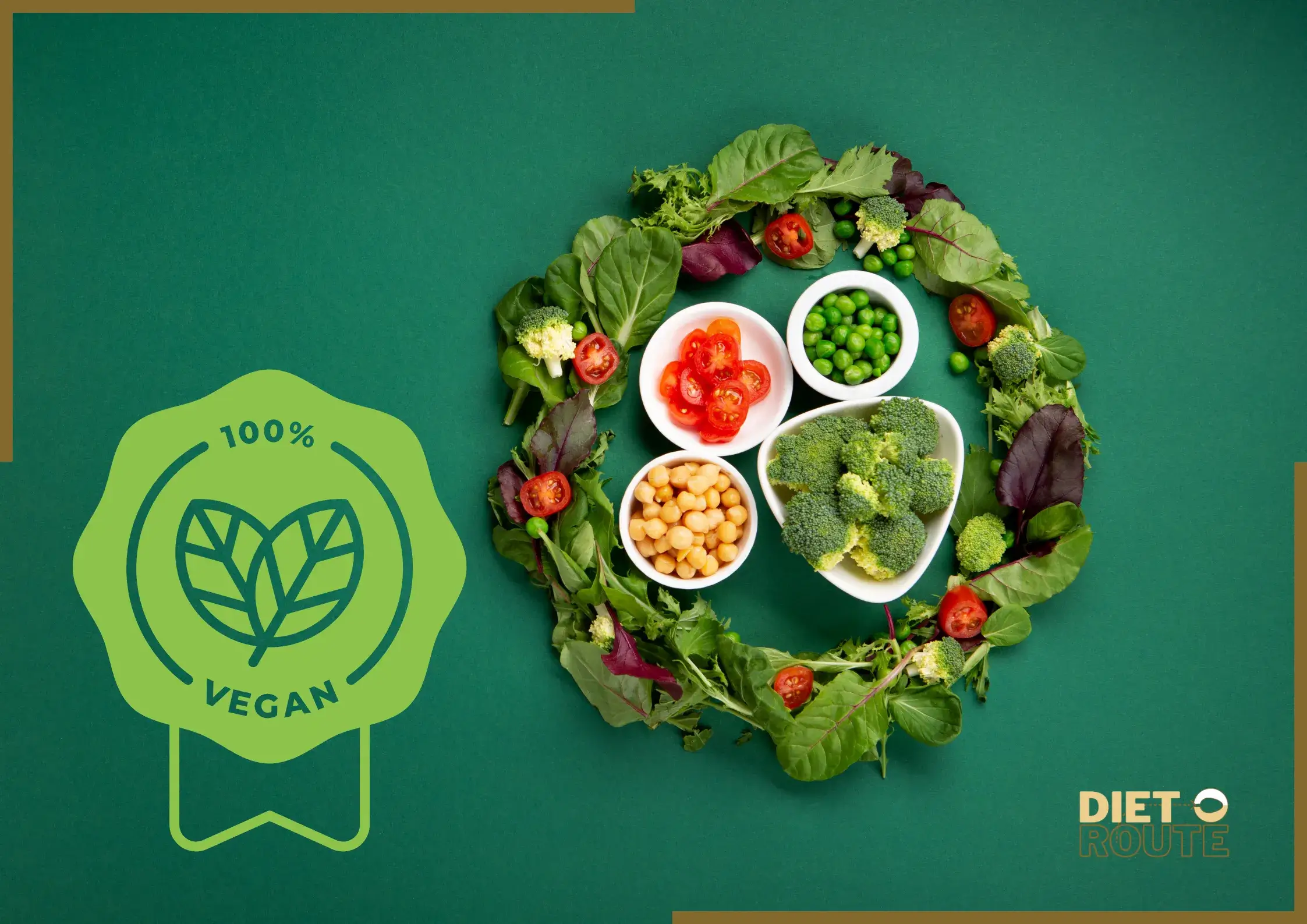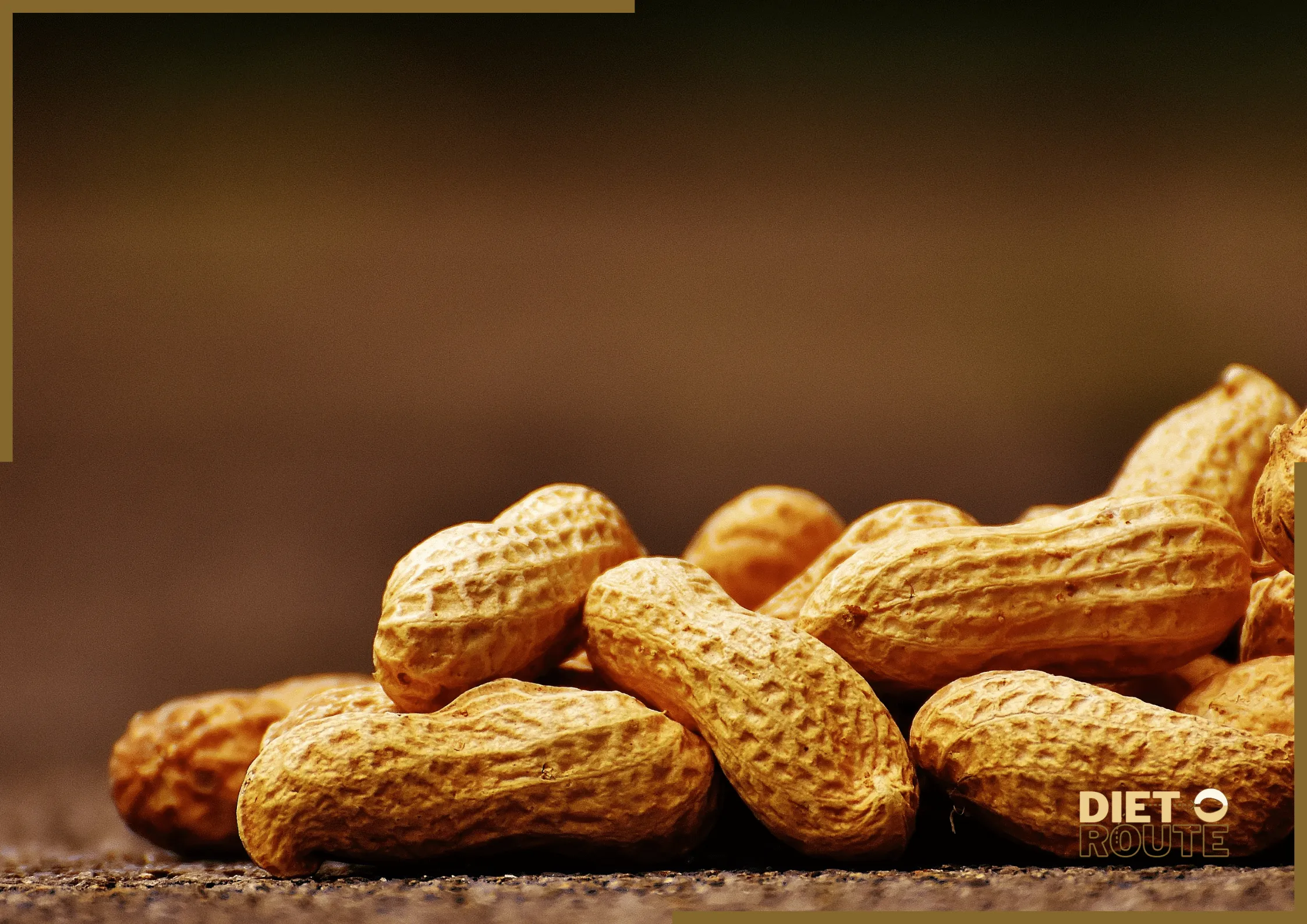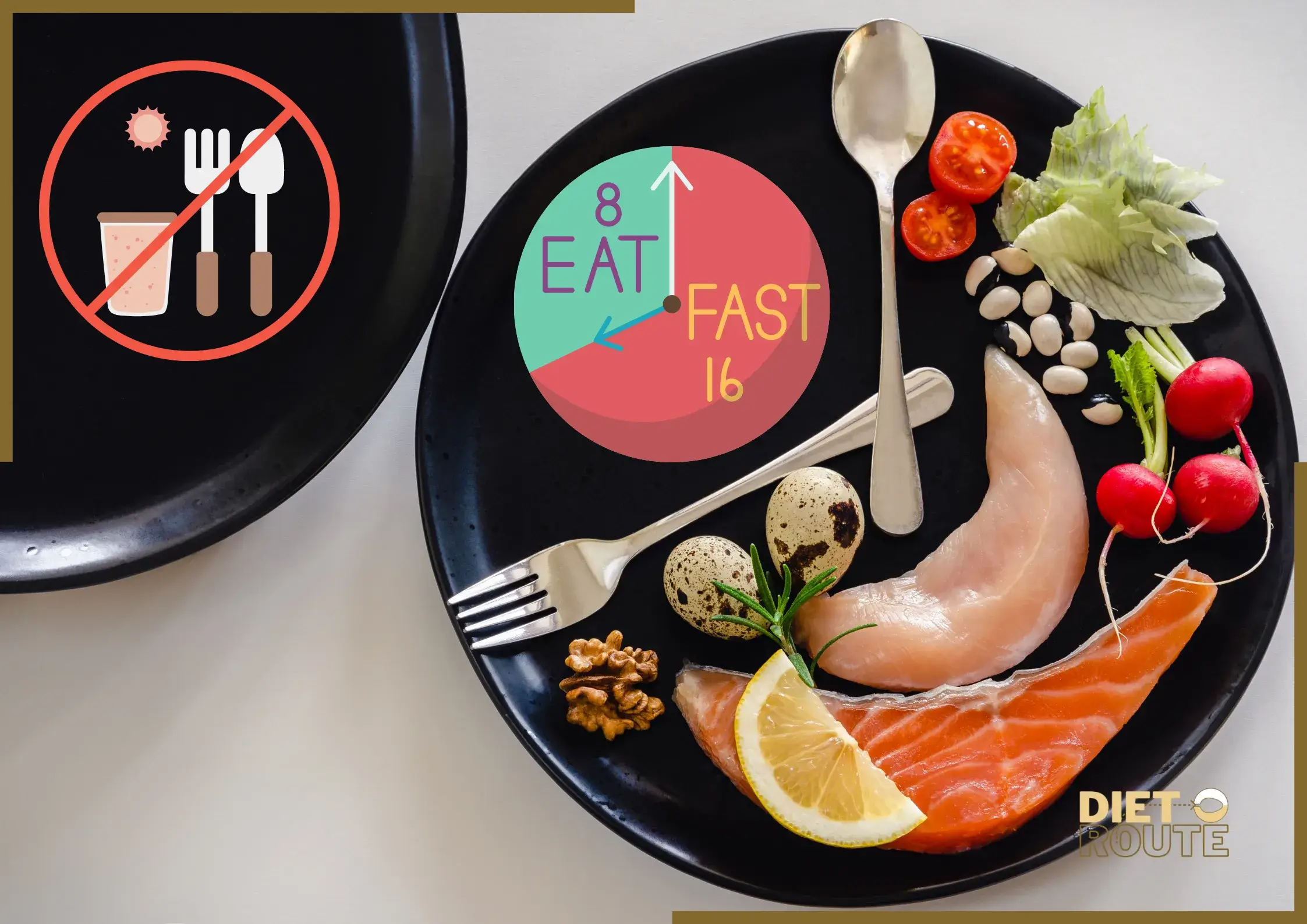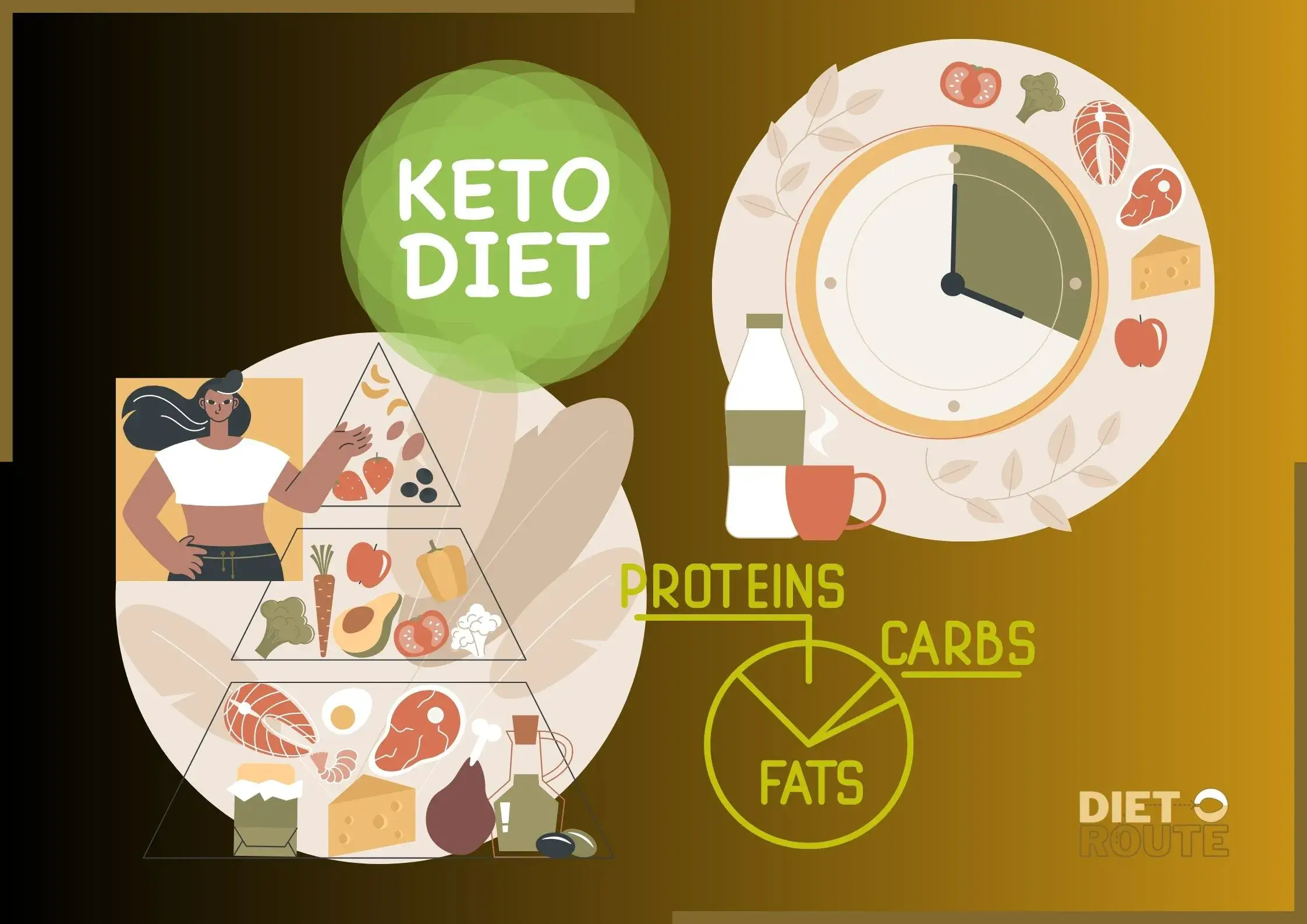“Veganism isn’t about deprivation; rather, it’s about adopting a healthy lifestyle that’s better for the environment and the creatures around us.” – Wellness Kraft
Table of Contents
Introduction
The number of people embracing a vegan diet has increased in recent years. Vegans avoid animal products such as meat, dairy, eggs, and honey in favor of plant-based cuisine. While a well-planned vegan diet can provide a wide range of health benefits, it is essential to ensure that you are obtaining all of the nutrients you require to maintain maximum health and well-being.
Veganism has grown in popularity due to its ethical, environmental, and health benefits. However, some people may be skeptical of a vegan diet’s ability to deliver all of the nutrients the body needs. This article seeks to answer those concerns by emphasizing the 9 essential nutrients that vegans should be aware of in order to meet their nutritional needs.
You can ensure that you are getting all you need to thrive on a plant-based diet by learning and implementing these crucial nutrients into your vegan diet. So, let’s have a look at the top 9 essential nutrients for vegans and learn how to eat a well-rounded, nutritionally balanced vegan diet.
Protein
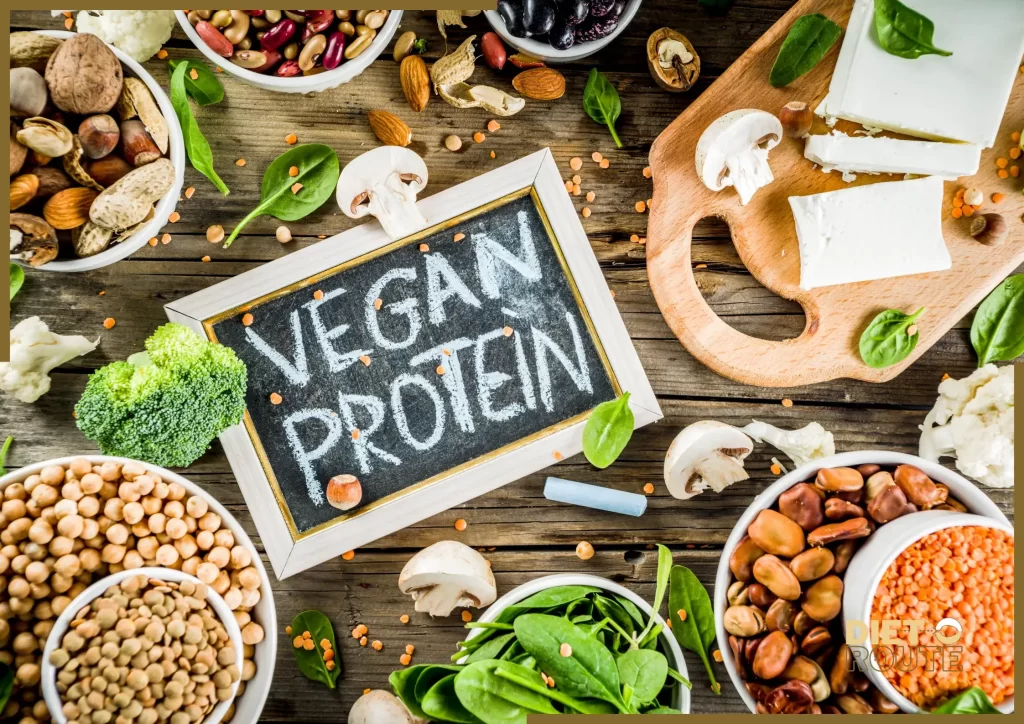
Protein is an essential ingredient for overall health since it aids in the formation and repair of tissues, the production of enzymes and hormones, and the maintenance of a healthy immune system. While many people identify protein with animal-based foods, there are numerous plant-based sources of this vitamin that vegans can consume.
Legumes (such as lentils, chickpeas, and beans), tofu, tempeh, seitan, quinoa, hemp seeds, chia seeds, and spirulina are all plant-based protein sources. It’s critical to consume a variety of these protein-rich foods in your diet to acquire a full range of amino acids, which are the building blocks of protein.
Using a variety of plant-based protein sources throughout the day will help you achieve your protein needs. Combining legumes with whole grains, such as brown rice or quinoa, produces a complementary amino acid profile similar to that of animal-based proteins. A further way to increase your protein consumption is by using nuts, seeds, and nut butters in your meals and snacks.
Vitamin B12
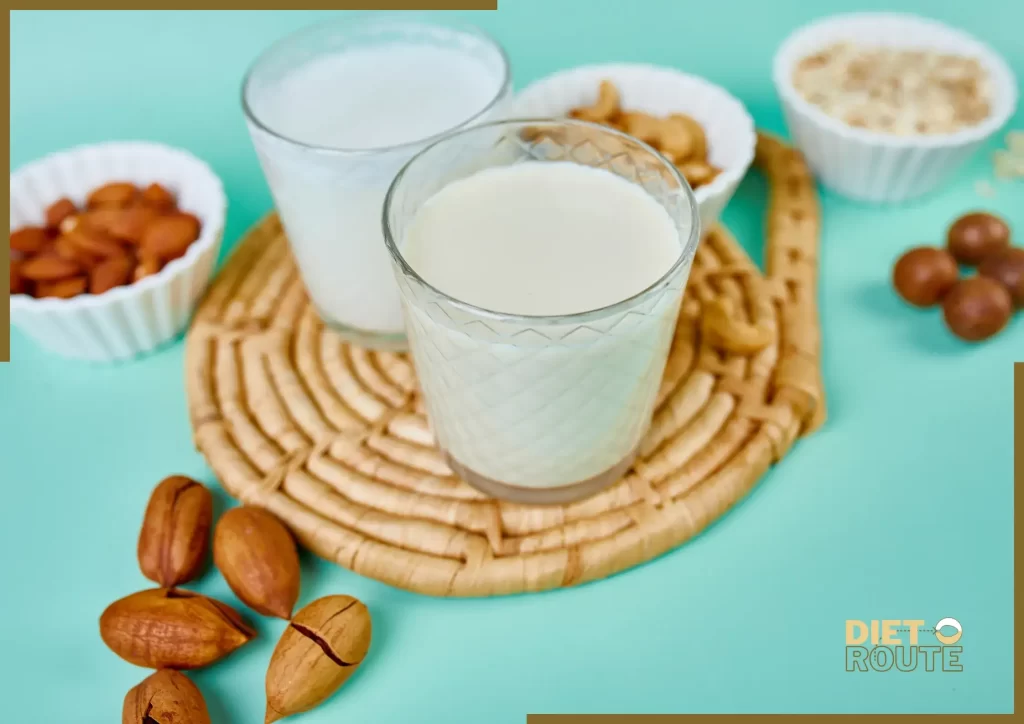
Vitamin B12 is an essential nutrient found mostly in animal-based meals. It is essential for the creation of red blood cells, DNA synthesis, and normal neuron activity. If you’re a vegan, you should take vitamin B12 supplements or eat meals enriched with this ingredient such as:
- Fortified plant-based milk
- Nutritional yeast
- Fortified cereals
- Algae and seaweed
Plant-based milk substitutes, morning cereals, nutritional yeast, and some meat substitutes are frequently fortified with vitamin B12. However, it is critical to read the labels to ensure that the product includes enough B12. A B12 supplement or nutritional supplements supplemented with B12 may also be helpful in meeting your daily needs.
Monitoring your vitamin B12 levels through blood testing and speaking with a healthcare expert on a regular basis will help ensure that you are getting enough of this essential supplement.
Iron
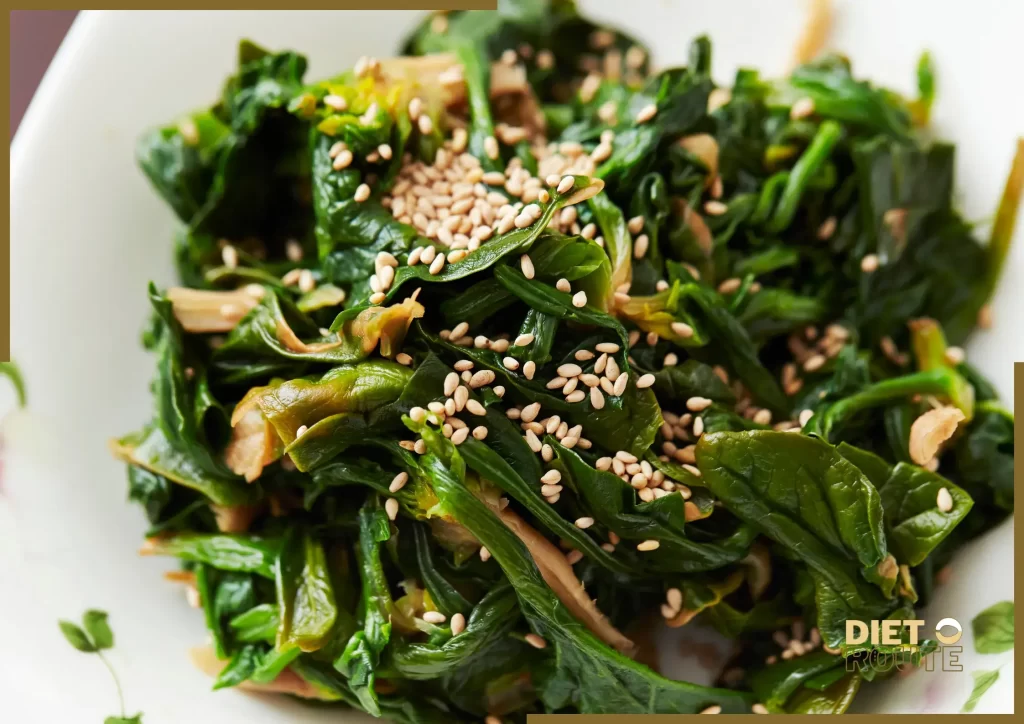
Iron is a mineral that is essential for the formation of red blood cells as well as the transportation of oxygen throughout the body. While plant-based iron sources are plentiful, the body absorbs iron from plant diets less efficiently than iron from animal sources. There are, however, techniques to improve iron absorption on a vegan diet.
Iron-rich foods, including beans, tofu, tempeh, spinach, kale, quinoa, and fortified cereals, can help you meet your iron needs. Iron absorption can be improved by combining iron-rich foods with vitamin C-rich foods such as citrus fruits, berries, peppers, and tomatoes. Cooking with cast-iron cookware can also help you get more iron.
To help iron absorption even more, avoid consuming foods or beverages that can hinder iron absorption during meals, such as tea, coffee, and calcium-rich foods. Consume these things separately from iron-rich meals instead.
If you believe that you are not achieving your iron requirements just through diet or if you have signs of iron insufficiency, speak with a healthcare practitioner who can recommend appropriate iron supplements or additional testing to determine your iron status.
Calcium
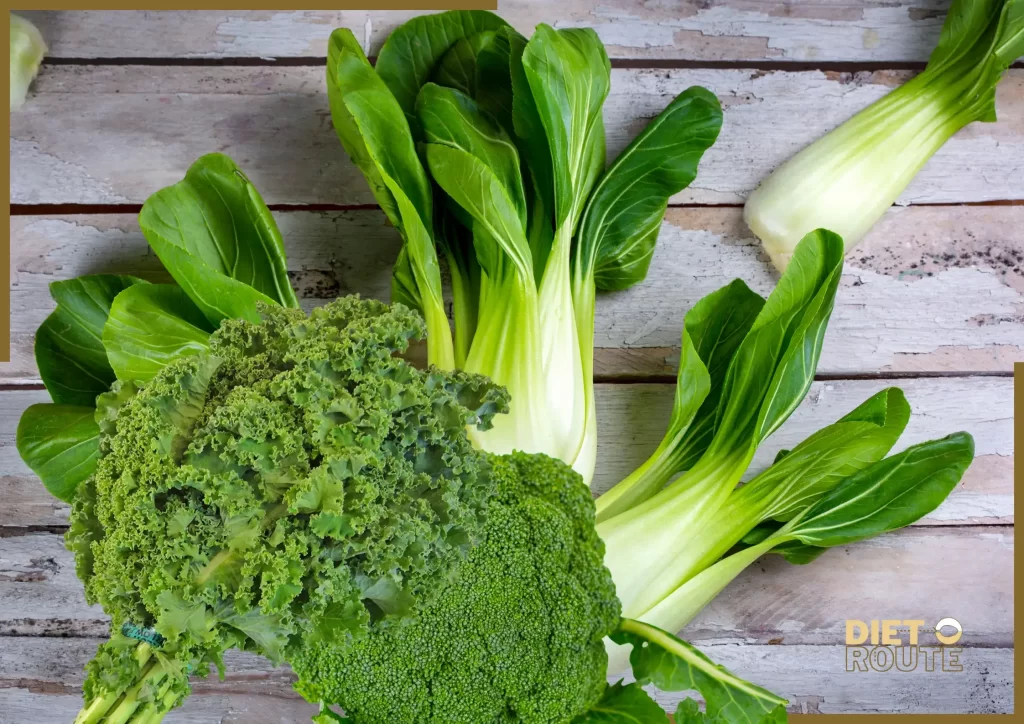
Calcium is an essential mineral that helps to maintain healthy bones and teeth, as well as normal muscle function and nerve communication. While many individuals get their calcium from dairy products, vegans can get this essential nutrient from a variety of plant-based diets.
Kale, broccoli, collard greens, and bok choy are great sources of calcium. Other calcium-fortified plant-based possibilities include calcium-fortified tofu, fortified plant-based milk alternatives, calcium-fortified orange juice, and calcium-set tempeh.
It’s vital to remember that the body’s ability to absorb calcium is influenced by other factors, such as vitamin D levels; therefore, getting enough vitamin D is essential for calcium absorption and use.
Omega-3 Fatty Acids
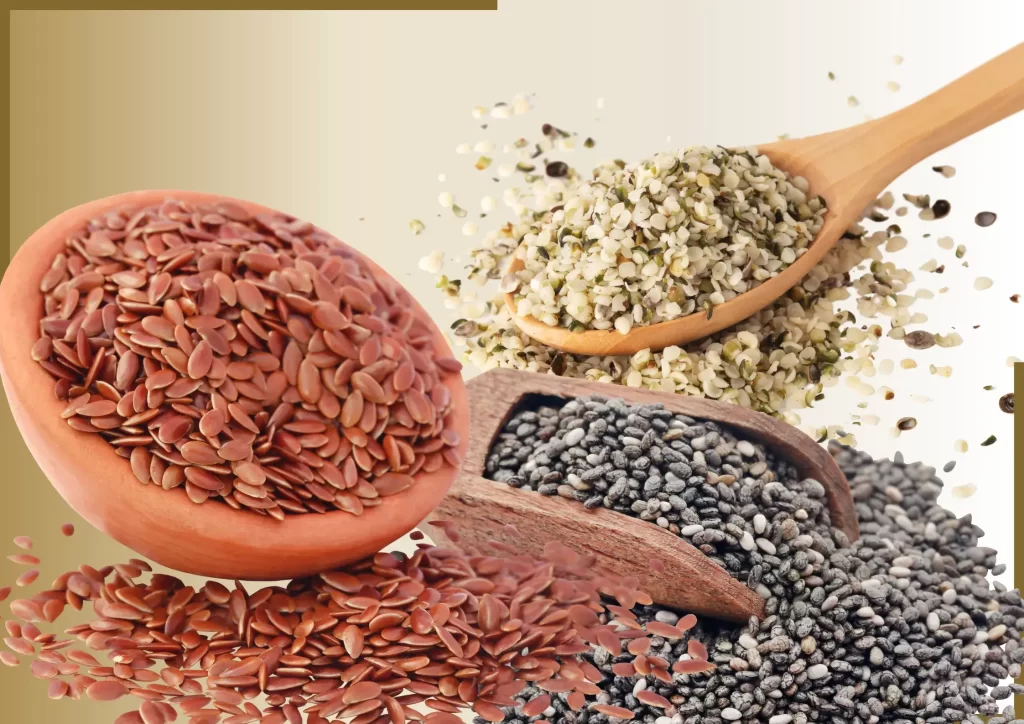
Omega-3 fatty acids are essential fats that are important for brain health, heart health, and inflammation reduction in the body. While omega-3s are generally associated with fish and fish oil, vegans can receive these healthy fats through plant-based sources.
Alpha-linolenic acid (ALA), a kind of omega-3 fatty acid, is abundant in flaxseeds, chia seeds, and hemp seeds. By sprinkling these seeds on cereals, salads, or smoothies, you can increase your omega-3 consumption. Walnuts, soy products, and algae-based supplements are also plant-based sources of omega-3s.
It is important to note that the body’s ability to convert ALA to other forms of omega-3s, such as eicosapentaenoic acid (EPA) and docosahexaenoic acid (DHA), is limited. If you’re concerned about fulfilling your EPA and DHA requirements, you might want to look into algae-based supplements, which contain these specific omega-3s made from algae and are vegan-friendly.
Vitamin D
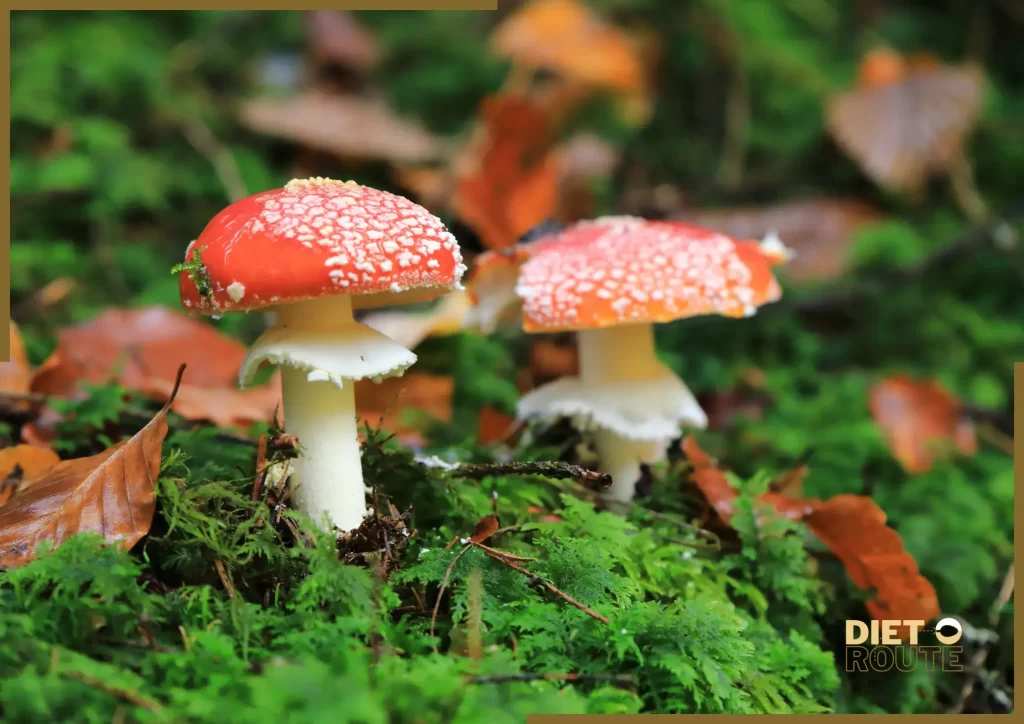
Vitamin D is an important mineral that helps with calcium absorption, bone health, and immunological function. While sunshine is a natural source of vitamin D, vegans living in areas with little solar exposure may struggle to receive appropriate levels. As a result, it is critical to guarantee adequate vitamin D intake through other sources. Some of the plant -based source are:
- Mushrooms (when exposed to UV light)
- Fortified plant-based milk
- Fortified breakfast cereals
- UV-exposed yeast
Plant-based vitamin D sources include fortified plant-based milk alternatives, fortified cereals, and UV-exposed mushrooms. However, meeting the required daily amount through diet alone can be difficult. As a result, vegans might consider a vitamin D3 supplement manufactured from lichen, a type of fungus, as it provides a vegan-friendly supply of this essential mineral.
Monitoring your vitamin D levels on a regular basis and speaking with a healthcare professional can assist in determining the optimal supplement amount based on your specific needs and circumstances.
Zinc
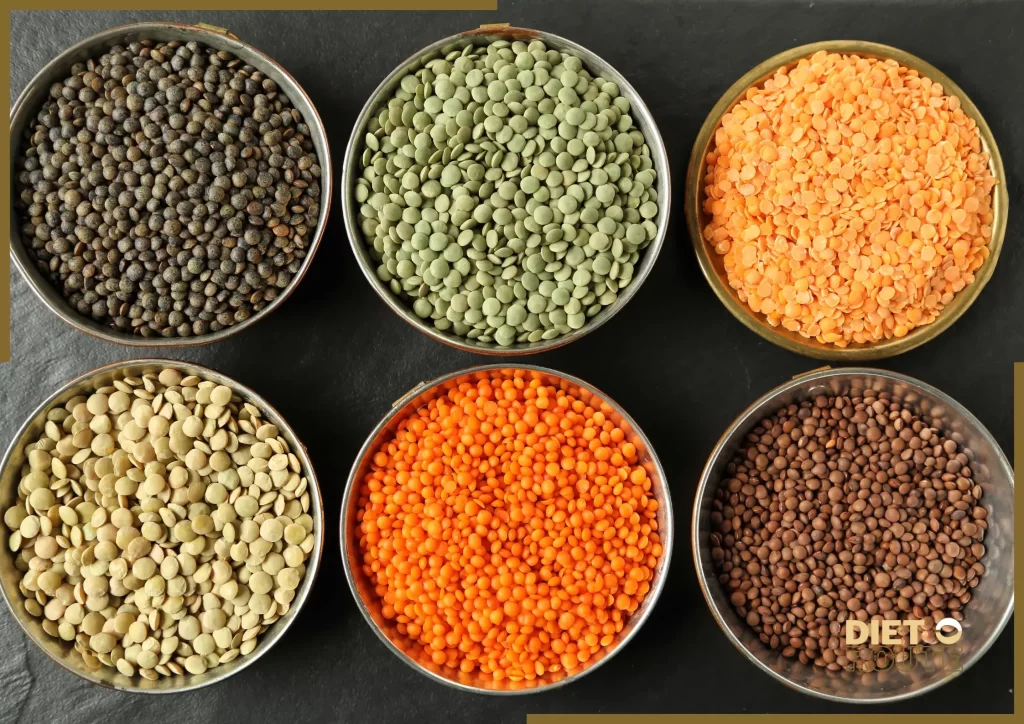
Zinc is an essential mineral involved in a variety of body activities such as immunological function, protein synthesis, and wound healing. Although zinc is often found in animal-based meals, vegans can meet their zinc needs through plant-based sources.
Legumes are great sources of zinc, including chickpeas, lentils, and beans. This essential mineral is also found in nuts and seeds such as pumpkin seeds, hemp seeds, and cashews. Whole grains, such as quinoa and brown rice, also contribute to your zinc consumption.
It is crucial to remember, however, that certain plant components, such as phytates and fiber, might inhibit zinc absorption. Soaking, sprouting, or fermenting legumes and grains can help lower their levels and improve zinc absorption. Consuming foods high in vitamin C and zinc can also help with absorption.
If you are concerned about reaching your zinc requirements only through diet, you should speak with a healthcare expert to determine the right dosage.
Iodine
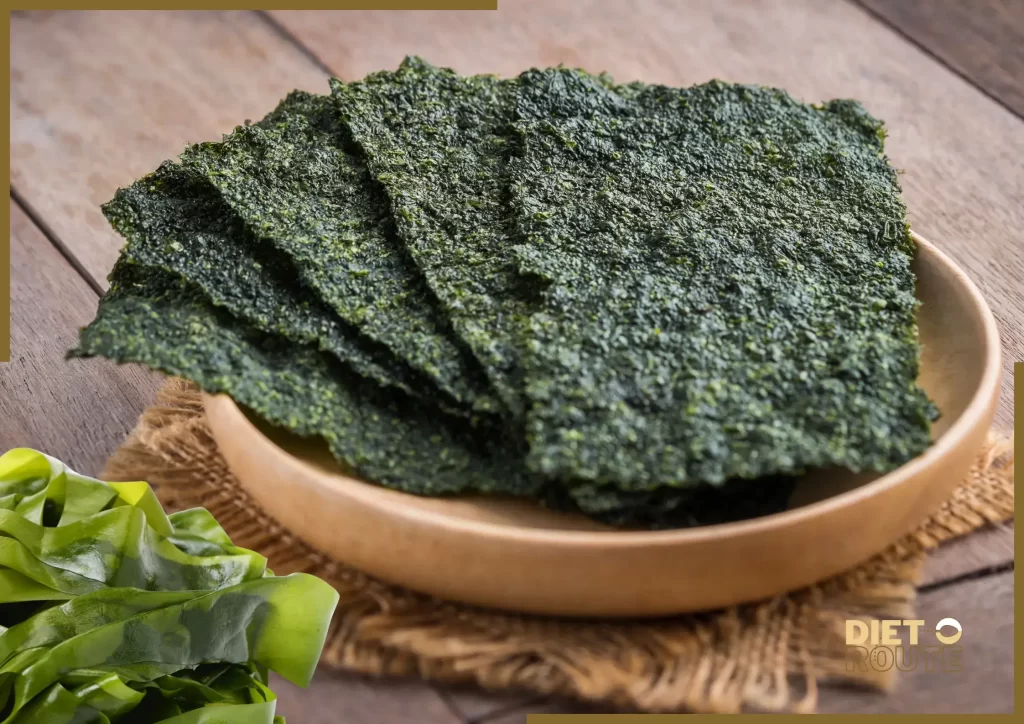
Iodine is a trace mineral that is essential for thyroid hormone production, which regulates metabolism and helps many organs work properly. Vegans can get iodine from other sources.
Iodine can be found in abundance in seaweed, including nori, kelp, and dulse. Small amounts of seaweed in your meals or the use of iodine-rich condiments, such as iodine-fortified salt replacements or seaweed seasonings, can help you satisfy your iodine needs. It is important to remember, however, that the iodine content of different species of seaweed can vary, so it is critical to check your intake and not exceed the prescribed limits.
If you are concerned about fulfilling your iodine needs through diet alone, you should speak with a healthcare expert to determine the proper amount for your unique needs.
Vitamin A
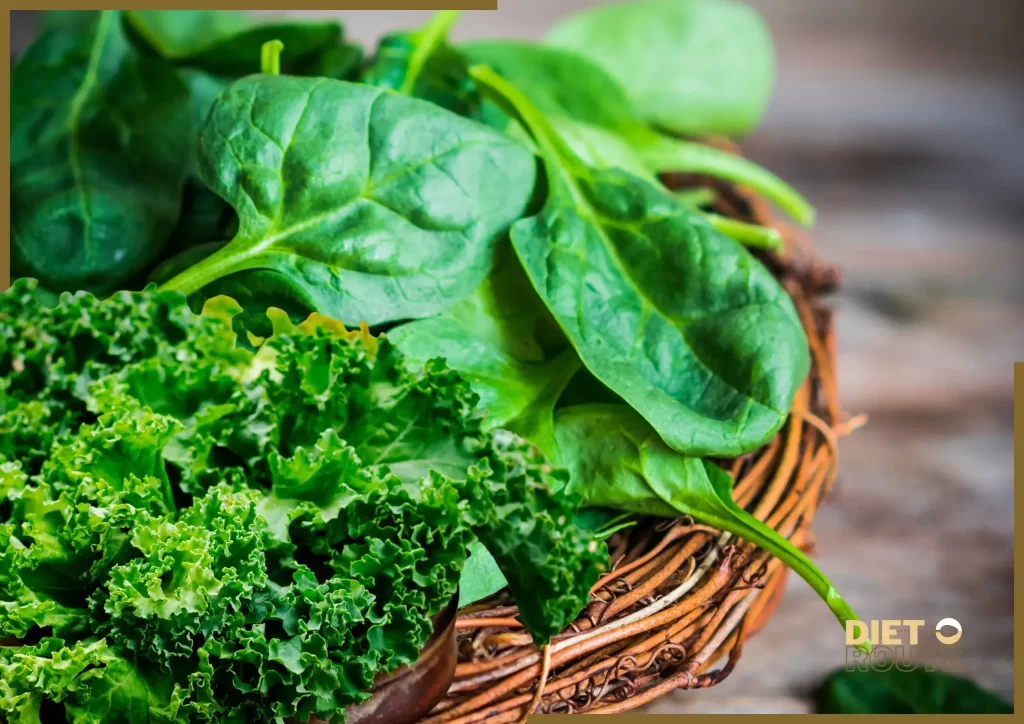
Vitamin A is a fat-soluble vitamin that is essential for vision, immunological function, and skin health. While animal-based meals have a high vitamin A concentration, vegans can get this mineral from a variety of plant-based sources.
Carrots, sweet potatoes, and mangoes are examples of orange and yellow fruits and vegetables high in beta-carotene, which the body can convert into vitamin A. This vitamin is also found in leafy green foods such as spinach and kale.
It should be noted that the body’s ability to convert beta-carotene to vitamin A is limited. Consuming vitamin A-rich foods with a source of dietary fat can help with absorption. Furthermore, some plant-based milk replacements and cereals may be fortified with vitamin A, so reading product labels might assist you in identifying enriched options.
If you are concerned about reaching your vitamin A requirements solely through diet, speak with a healthcare practitioner who can advise you on suitable supplementation if necessary.
Scientific Analysis
A Study from the Journal of the American Heart Association According to the study, incorporating a plant-based diet into your lifestyle can decrease the likelihood of heart disease, lower cholesterol levels, and enhance blood pressure management.
The Journal of General Internal Medicine published a study that compared weight loss results of different dietary patterns, including a vegan diet. Studies have shown that adhering to a vegan diet is associated with reduced body weight and BMI in comparison to those who do not follow a vegan diet.
The Journal of Diabetes Investigation published a study that investigated the impact of a vegan diet on the prevention and management of diabetes. Research suggests that incorporating a plant-based diet into your lifestyle may enhance glycemic control, decrease insulin resistance, and mitigate the likelihood of developing type 2 diabetes.
Nutrition Reviews published studies that examined how a vegan diet can be linked to a lower risk of cancer. Research suggests that incorporating a plant-based diet, consisting of fruits, vegetables, whole grains, and legumes, can potentially reduce the risk of specific types of cancer.
A Study from Frontiers in Nutrition Journal ,According to the study, adopting a plant-based diet can positively impact gut microbial profiles, leading to a healthier gut environment.
The Journal of the Academy of Nutrition and Dietetics published studies that analyzed the nutritional adequacy of a vegan diet. This study highlights the significance of consuming enough nutrients like vitamin B12, iron, calcium, omega-3 fatty acids, and zinc from plant-based foods or suitable supplements.
The Journal of Nutritional Science published a research study that evaluated how a vegan diet affects bone health. According to the research, individuals following a vegan diet may have a slightly increased risk of fractures and lower bone mineral density. By paying attention to essential nutrients like calcium, vitamin D, and protein, vegans can ensure optimal bone health through effective planning.
The Nutrients journal published research that explored the correlation between mental well-being and a vegan diet. According to the study, individuals who adhere to a vegan diet have reported reduced levels of stress, anxiety, and depression in comparison to those who do not follow a vegan diet. Additional research is required to comprehend the fundamental mechanisms.
In a Nut Shell
Living a vegan lifestyle has significant health, environmental, and animal welfare benefits. However, it is critical to ensure that you are consuming all of the essential nutrients that your body needs for maximum health. This article has examined 9 essential nutrients for vegans and explained their plant-based sources.
Protein is an essential macronutrient that can be derived from legumes, tofu, tempeh, and a variety of plant-based sources. Vitamin B12, which is required for the development of red blood cells and nerve function, should be supplemented or ingested through fortified meals. Iron, which is necessary for the development of red blood cells, can be obtained through legumes, leafy greens, and fortified cereals.
Calcium, which is required for strong bones and teeth, can be supplied via plant-based milk substitutes, fortified orange juice, and leafy greens. Flaxseeds, chia seeds, and walnuts contain omega-3 fatty acids, which are helpful to brain and heart health. Vitamin D, which is essential for calcium absorption, can be obtained from sunlight or lichen-derived supplements.
Zinc, which is necessary for immunological function and protein synthesis, can be found in legumes, nuts, seeds, and whole grains. Iodine, which is required for thyroid function, can be obtained through seaweed and iodine-fortified condiments. Vitamin A, which is essential for vision and immunological function, is found in orange and yellow fruits and vegetables, as well as leafy greens.
While this article contains useful information, it is always advisable to contact a healthcare practitioner or certified dietitian to verify that you are meeting your unique nutrient needs. They can provide tailored advice and answer any unique issues or concerns you may have.
Remember that a well-planned and diverse vegan diet may provide your body with all of the essential nutrients it requires. You can live a vegan lifestyle and get its numerous benefits by adopting a diverse range of plant-based meals, being careful of fortified alternatives, and considering proper supplementation when necessary.
Key Takeaways
A vegan diet, with careful preparation and diversity, may provide all the essential nutrients your body needs.
Plant-based protein sources include lentils, tofu, tempeh, and a variety of other plant-based choices.
Because vitamin B12 is found predominantly in animal products, it is necessary to supplement or consume fortified meals to meet your needs.
Legumes, leafy greens, and fortified cereals are just a few examples of plant-based sources of iron.
Calcium is essential for strong bones and teeth and can be obtained via plant-based milk substitutes, fortified orange juice, and leafy greens.
Omega-3 fatty acids, which are found in flaxseeds, chia seeds, and walnuts, are beneficial for brain and heart health.
Vitamin D is essential for calcium absorption and can be obtained via sunlight or vegan-friendly supplements.
Zinc, which is essential for immunological function and protein synthesis, is found in legumes, nuts, seeds, and whole grains.
Iodine, which is required for thyroid health, can be obtained via seaweed and iodine-fortified condiments.
Vitamin A is found in orange and yellow fruits and vegetables, as well as leafy greens, and is essential for vision and immunological function.
Frequently Asked Questions (FAQs)
-
1. Can vegans consume enough protein?
Vegans can get enough protein from plant-based sources such as beans, tofu, tempeh, and a variety of other plant-based choices.
-
2. Is it necessary to supplement with vitamin B12 on a vegan diet?
Because vitamin B12 is largely found in animal sources, vegans should supplement or consume fortified meals to achieve their B12 requirements.
-
3. What are some good plant-based iron sources?
Plant-based sources of iron include legumes, leafy greens (such as spinach and kale), and fortified cereals.
-
4. How can vegans obtain adequate calcium without eating dairy products?Plant-based milk substitutes, fortified orange juice, leafy greens, and other calcium-enriched foods are all available to vegans.
-
5. Are omega-3 fatty acids from vegan sources available?Flaxseeds, chia seeds, walnuts, and algae-based supplements all contain omega-3 fatty acids.
-
6. Without sunlight, how can vegans meet their vitamin D needs?Vegans who live in areas with little sunlight should consider vitamin D pills manufactured from lichen, which is a vegan-friendly source.
-
7. What are some zinc-rich plant-based foods?Plant-based sources of zinc include legumes, nuts, seeds, and whole grains.
-
8. Do vegans require additional supplements?
Vegans should consult a healthcare practitioner or certified dietitian to check their nutrient needs and determine whether additional supplementation is required.
-
9. Is it possible for vegans to receive adequate omega-3 fatty acids without eating fish?
Vegans can get omega-3 fatty acids through plant-based sources such as flaxseeds, chia seeds, hemp seeds, and walnuts. Including these foods in your diet or taking algae-based supplements will help you satisfy your omega-3 fatty acid needs.
-
10. How can vegans maintain an adequate zinc intake?
Vegans can get zinc from legumes (chickpeas, lentils, beans), nuts (cashews, almonds), seeds (pumpkin seeds, hemp seeds), and whole grains (quinoa, brown rice).
